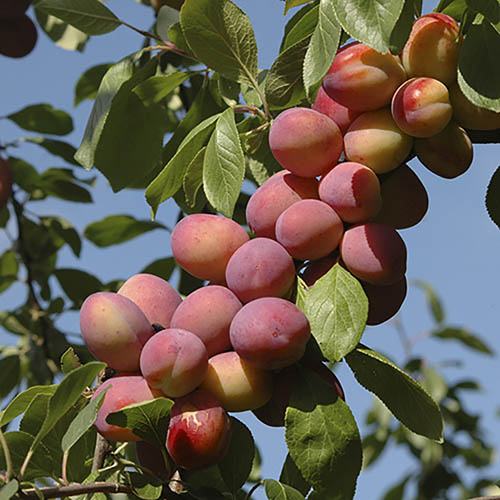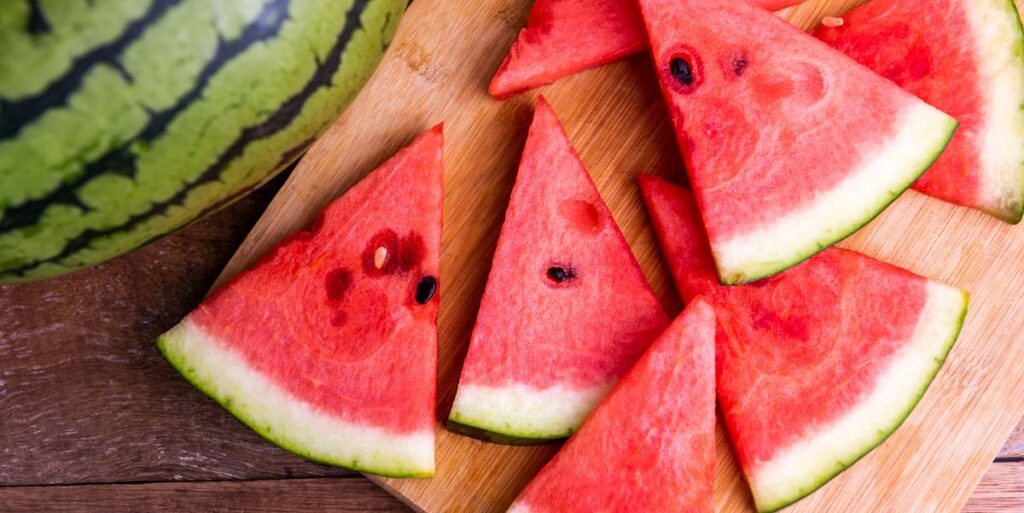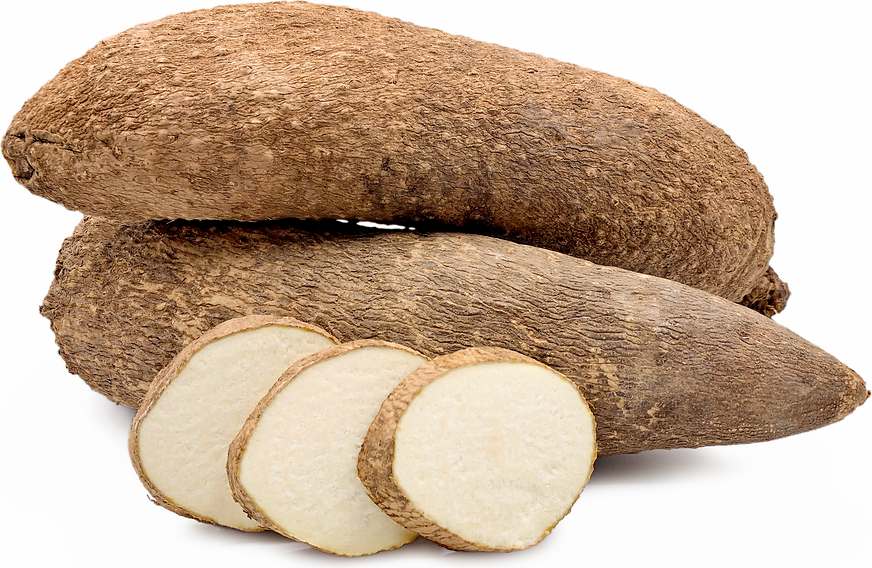“Eat to fuel your body, not to satisfy your feelings. Accept the goodness of whole meals, and allow your plate to serve as a colourful palette that reflects the abundance of health benefits and wellbeing.”
U FOR UGLYFRUIT:

I am not ugly, I am just ugly from outside!
The term “ugly fruit” typically refers to misshapen or visually imperfect fruits that may not meet conventional aesthetic standards but are still perfectly edible and nutritious. These fruits often provide similar health benefits to their visually flawless counterparts. Here are some general health benefits associated with consuming “ugly fruit” or imperfect fruits:
1-Nutrient Content:
Like any other fruit, ugly fruits are full of vital elements like antioxidants, vitamins, and minerals. The particular fruit variety may have a different nutritious content.
2-Antioxidant Properties:
Antioxidant qualities are well-known for fruits, no matter how they look. By assisting the body in combating free radicals, antioxidants help lower inflammation and oxidative stress.
3-Dietary Fibre:
Fruits are an excellent source of dietary fibre, even the ones that you might think are “ugly.” In addition to encouraging regular bowel movements and maintaining a healthy gut microbiota, fibre is essential for digestive health.
4-Vitamins and Minerals:
Depending on the type of fruit, ugly fruits can help you meet your daily requirements for important vitamins and minerals including vitamin C, potassium, folate, and others.
5-Heart Health:
Many fruits can promote heart health, despite their uneven forms. They frequently include minerals like potassium, which lowers blood pressure, and antioxidants, which support healthy cardiovascular function.
6-Weight Management:
Fruits are a satiating and nutrient-dense option for people trying to control their weight because they are typically high in fibre and low in calories.
7-Hydration:
Fruits help you stay hydrated generally because of their high water content. Numerous body processes depend on maintaining proper hydration.
8-Blood Sugar Regulation:
Fruits can help control blood sugar levels because of their high fibre content, which makes them a good choice for people with type 2 diabetes or at risk.
9-Skin Health:
Fruits include antioxidants that shield skin from oxidative damage and encourage the production of collagen.
10-Cancer Prevention:
A greater body of study is required to fully understand the possible anti-cancer capabilities of some fruit components.
It’s important to note that the appearance of a fruit does not necessarily reflect its nutritional value or taste. Ugly fruits can be just as delicious and nutritious as their more visually appealing counterparts. In fact, promoting the consumption of imperfect or “ugly” fruits can help reduce food waste and contribute to more sustainable food practices.
V FOR VICTORIA PLUM:

“The Victoria plum is a royal jewel in the orchard of life, its delicate essence a tribute to the beauty that ripens with time.”
Victoria plum, also known as European plum or Prunus domestica ‘Victoria,’ is a type of sweet plum that offers various health benefits due to its nutrient content. Here are some key health benefits associated with consuming Victoria plums:
1-Rich in Vitamins and Minerals:
Victoria plums are a good source of potassium, dietary fibre, vitamin C, vitamin K, and other important vitamins and minerals.
2-Antioxidant Properties:
Vitamin C and polyphenols, two types of antioxidants found in plums, especially Victoria plums). By scavenging free radicals, antioxidants aid in the body’s reduction of oxidative stress and inflammation.
3-Digestive Health;
Victoria plums include dietary fibre that supports a healthy gut flora, encourages regular bowel movements, and prevents constipation, all of which are beneficial to digestive health.
4-Heart Health:
Victoria plums’ potassium concentration aids in blood pressure regulation and cardiovascular health promotion. Plums’ fibre and antioxidants may also help maintain normal cholesterol levels.
5-Bone Health:
Victoria plums are a good source of potassium and vitamin K, two nutrients that are necessary for strong, healthy bones.
6-Blood Sugar Regulation:
Victoria plums’ high fibre content may aid with blood sugar regulation. However, those who have diabetes should only eat them in moderation and watch how many carbohydrates they eat overall.
7-Weight Management:
Victoria plums are a wholesome and filling snack for anyone trying to control their weight because they are comparatively low in calories and fat.
8-Hydration:
Because plums contain a lot of water, they help you stay hydrated overall. Numerous body processes depend on maintaining proper hydration.
9-Skin Health:
Vitamin C and other antioxidants found in Victoria plums help to maintain healthy skin by shielding it from oxidative damage and encouraging the production of collagen.
10-Improved Immune Function;
Victoria plums’ high vitamin C content boosts immunity and aids the body’s defence against diseases and infections.
11-Reduced Inflammation:
Plums contain some chemicals that have anti-inflammatory qualities, which may aid in lowering bodily inflammation.
12-Cancer Prevention:
Based on preliminary study, plum antioxidants and bioactive substances may offer protection against specific cancer types. To clearly establish a connection, more research is necessary.
Incorporating Victoria plums into your diet, either fresh or as part of dishes like salads, desserts, or jams, can be a flavorful way to enjoy their health benefits.
W FOR WATERMELON:

“Crisp and juicy, the vivid colours of the watermelon hide a cool summer melody. Taste the scent of sunshine and the refreshing kiss of nature’s own art of hydration with every bite.”
Watermelon is not only a delicious and refreshing fruit but also offers several health benefits due to its rich nutrient content. Here are some key health benefits associated with consuming watermelon:
1-Hydration::
Due to its high water content, watermelon is a highly hydrating fruit. Maintaining adequate hydration is crucial for managing body temperature, facilitating digestion, and facilitating the transportation of nutrients.
2-Vitamins and Minerals:
Potassium, magnesium, vitamin C, and vitamin A are among the important vitamins and minerals that are present in watermelon. These nutrients are essential for maintaining general health.
3-Antioxidant Properties:
Antioxidants found in watermelon include lycopene and vitamin C. By scavenging free radicals, antioxidants aid in the body’s reduction of oxidative stress and inflammation.
4-Heart Health:
Watermelon contains lycopene, which has been linked to positive effects on the cardiovascular system. It might assist in lowering cholesterol, blood pressure, and enhancing blood vessel health.
5-Improved Exercise Performance:
Consuming watermelon may help lessen muscular soreness and enhance workout performance, according to certain research. Citruline is an amino acid that may improve blood flow, and this is why it is present.
6-Anti-Inflammatory Effects:
Watermelon’s anti-inflammatory and antioxidant properties may help lessen inflammation in the body. Numerous medical conditions are associated with chronic inflammation.
7-Eye Health:
Watermelon includes beta-carotene, which the body uses to produce vitamin A. In addition to being necessary for good vision, vitamin A may help avoid age-related macular degeneration.
8-Digestive Health:
Watermelon is a good source of dietary fibre, which aids in constipation prevention, healthy digestion, and the maintenance of a functional digestive system.
9-Weight Management:
Watermelon is a good choice for anyone trying to control their weight because it is low in calories and fat. The high fibre and water content help you feel fuller for longer.
10-Reduced Risk of Dehydration:
Watermelon is a hydrating snack because of its high water content, especially in hot weather or after exercise. You should avoid dehydration as it might cause a number of health problems.
11-Skin Health:
Watermelon contains vitamins A and C, which support collagen synthesis and shield skin from oxidative damage, so contributing to healthy skin. Sustaining the health of your skin also involves staying well hydrated.
12-Kidney Health:
Potassium, which is present in watermelon, helps control blood pressure and is necessary for renal function. Kidney stones and other kidney-related problems are less common in those who consume adequate potassium.
Incorporating watermelon into your diet, whether enjoyed fresh or added to salads and smoothies, can be a tasty and nutritious way to reap its health benefits.
Y FOR YAMS:

“Yams are earthly diamonds, nurtured by the embrace of the soil, their rough skin shielding a rich tapestry of flavours—a monument to nature’s tenacity and copious offers.”
Yams are nutrient-dense root vegetables that offer a range of health benefits due to their rich nutritional profile. Here are some key health benefits associated with consuming yams:
1-Rich in Nutrients:
Vitamin C, vitamin B6, potassium, manganese, dietary fibre, and complex carbohydrates are just a few of the important elements that yams are a good source of.
2-Digestive Health:
The fibre content in yams helps digestive health by reducing constipation, encouraging regular bowel motions, and cultivating a healthy gut microbiota.
3-Heart Health:
Yams are rich in potassium and low in fat and sodium, which together enhance heart health by assisting in blood pressure regulation. Consuming enough potassium is linked to a decreased risk of cardiovascular illnesses.
4-Antioxidant Properties:
Yams contain antioxidants, including vitamin C and beta-carotene. By scavenging free radicals, these substances lessen oxidative stress and inflammation within the body.
5-Weight Management:
Yams are a nutrient-dense, satisfying food that can help people control their weight because of their high fibre content, which also makes them feel full.
6-Blood Sugar Regulation;
Yams are a vegetable that are starchy, although they have a lower glycemic index than certain other starchy foods. They may therefore have less of an effect on blood sugar levels, which makes them a good option for people who already have diabetes or are at risk for developing it.
7-Immune System Support:
Yams are a great source of vitamin C, which is essential for a strong immune system. As an antioxidant and supporter of white blood cell formation, vitamin C shields the body from diseases and infections.
8-Bone Health:
Essential minerals found in yams include manganese, which is important for the development and preservation of bones.
9-Anti-Inflammatory Effects:
A few substances included in yams, such as phytochemicals and anthocyanins, may have anti-inflammatory qualities that help lessen inflammation in the body.
10-Skin Health:
The body transforms the beta-carotene in yams into vitamin A, which supports cell turnover and guards against oxidative damage to promote healthy skin.
11-Energy Production:
Yams are an excellent source of complex carbs, which deliver energy gradually. They are therefore a good option for people that need a lot of energy, such as athletes.
12-Management of Premenstrual Symptoms:
For some people, yams’ vitamin B6 may help reduce premenstrual discomfort.
It’s important to note that yams are distinct from sweet potatoes, although the terms are often used interchangeably. Yams are starchy and have rough, scaly skin, while sweet potatoes have smoother skin and come in various colors.
Z FOR ZUCCHINI:

“Zucchini whispers the simplicity of summer in the green embrace of the garden; a versatile delight in every delicate bite.”
Zucchini, also known as courgette, is a versatile and nutritious vegetable that offers a range of health benefits. Here are some key advantages associated with consuming zucchini:
1-Low in Calories:
Because it is low in calories, zucchini is an excellent meal choice for anyone trying to control their weight without sacrificing flavour or nutrition.
2-Rich in Nutrients:
Zucchini is low in calories but high in potassium, vitamin A, vitamin C, fibre, and folate, among other important nutrients. These nutrients support general wellbeing and health.
3-Dietary Fiber:
Dietary fibre, which helps maintain a healthy gut microbiota and supports digestive health, is abundant in zucchini.
4-Antioxidant Properties:
Antioxidants like vitamin C and beta-carotene found in zucchini assist the body fight off free radicals, which lowers inflammation and oxidative stress.
5-Heart Health:
Zucchini’s fibre, potassium, and folate support heart health. Potassium aids in blood pressure regulation, while folate is critical for heart health.
6-Blood Sugar Regulation:
Because fibre slows down the bloodstream’s absorption of sugar, it may help control blood sugar levels. For those who already have diabetes or are at risk, this may be helpful.
7-Weight Management:
Because of its high fibre content and low calorie count, zucchini makes a delicious complement to meals and helps with weight management by encouraging a full feeling.
8-Hydration:
Due to its high water content, zucchini helps keep you hydrated overall. Numerous body processes depend on maintaining proper hydration.
9-Bone Health:
Iron, manganese, and vitamin K are among the nutrients found in zucchini that are vital for healthy bones. Specifically, vitamin K is essential for the mineralization of bones.
10-Skin Health:
Vitamin C and beta-carotene, two antioxidants found in zucchini, help maintain healthy skin by shielding it from oxidative damage and encouraging the production of collagen.
11-Eye Health;
Zucchini contains carotenoids, such lutein and zeaxanthin, which are good for the eyes and may help prevent age-related macular degeneration.
12-Reduced Inflammation:
Flavonoids and polyphenols, two of the substances found in zucchini, have anti-inflammatory qualities that may aid in lowering bodily inflammation.
13-Versatility in Cooking;
It’s possible to use zucchini as a substitute for pasta (zoodles) and in a variety of culinary dishes, such as salads, stir-fries and soups.
Incorporating zucchini into your diet can be a flavorful and nutritious way to enjoy these health benefits. Whether grilled, sautéed, baked, or raw, zucchini adds a mild and pleasant taste to dishes.
For more health benefits: Wellnesio.com and blog page


Amazing👌
Amazing✨👍👍